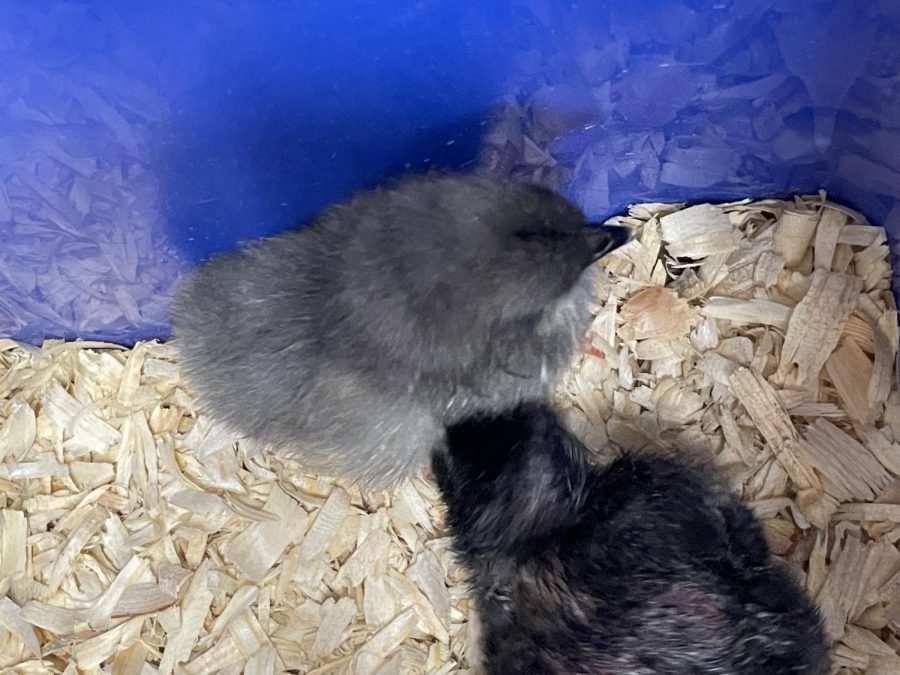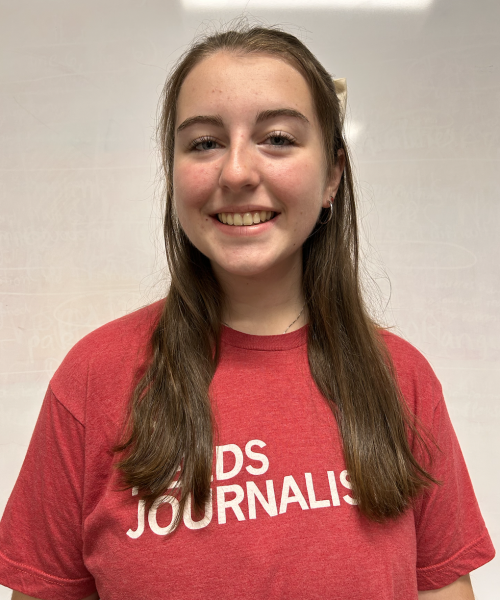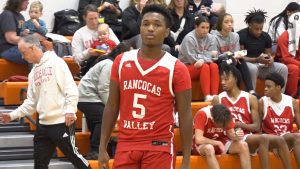Weird science in RV’s new genetics class
Check out RV’s latest hatch of scientists (and chickens)
Three-day old chicks in Ms. Clymer-Smith’s room
May 24, 2023
Since 1990, employment in STEM occupations has grown 79%—increasing from 9.7 million to 17.3 million, and in a world where jobs in science and the technologies are growing, it is increasingly important that students get introduced to the possibilities STEM careers offer.
RV’s newest “hatch” in the way of elective courses offers students an opportunity to expand their knowledge of a very specific field of science: the study of Genetics.
Taught by Ms. Kelly Clymer-Smith, the Genetics elective is available to all students grades 10-12 who have successfully completed their Biology class. The class takes place over a 9-week period and builds upon the study of genes and molecular genetics that begins sophomore year in Biology.
“The course covers three units; Classic Genetics, Molecular Genetics and Biotechnology,” said Clymer-Smith.
Students in the class learn about a myriad of topics under the Genetics umbrella, such as meiosis, fertilization, molecular genetics, and biotechnology through both lecture style discussion and lab based learning.
Ms. Clymer-Smith designed the course specifically to expose students enrolled to a deeper level of biology than any other course offered at RV.
“My hope is that when students leave this class they have a deeper appreciation for how complex genetics can be, an understanding and appreciation of the biotechnology that is currently available and an appreciation for STEM,” she said.
Junior JT Mozes enrolled in the class for that exact reason; to develop a deeper understanding of biology prior to college.
“I am currently interested in a Biology major heading into college,” said Mozes, “and I wanted to make sure I explore areas of the class again before I make my first decision. I originally only planned on taking AP Bio next year to fulfill that, however, when I heard about Genetics, which happened to be my favorite part of Bio 1, I knew I had to take it.”
On the other hand, junior Bradley Stutzman enrolled in the course because he was intrigued and wanted to see what the class was all about.
“I chose to take genetics because it seemed like a pretty interesting class and I also saw that it was a new class at RV so I wanted to just see what it was like,” he said.
The class really is for anyone at RV who is interested in genetics, not just STEM focused students with an intent to major in the sciences.
“I don’t think there is a typical type of student that takes the class,” said Clymer-Smith. “Some students take it because they find genetics interesting, and some take it because it fills time in their schedules.”
The lab based portion of the class seems to be the most interesting to students, most recently the hatching and close study of chicks right in the classroom.
“This year we were fortunate enough for Mrs. Darlene Rahner to donate fertilized eggs to our class so that we could learn about the various stages of development,” said Clymer-Smith. “We took time looking at preserved specimens of chicks in various stages of development and kept a chick journal. [On] hatching day we had three eggs hatch with at least 2 more showing promise out of the 10 eggs we started with.”
“We had to watch chicks hatch for 21 days and see how they developed and changed throughout that time,” said Stutzman, who was very intrigued with the lab and its focus on different genetic factors.
“My favorite part about this course is the labs we get to do,” echoed Mozes, who claimed the hatching lab was enjoyable because it was different from any lab he had completed in a class before. “Even in upcoming labs, we are going to make something unknown to us currently, glow in the dark, which is super cool. These just aren’t labs we do in Bio 1, making it a super fun element to the class.”
With newer technologies developing daily in the growing STEM world, RV’s offering of a Genetics class allows students to further explore an aspect of science that they would not have the opportunity to in their normal required science courses.
“Although there is still a lot of work that we have to do in class,” said Mozes, “it builds off of Bio 1, meaning it is not all brand new information, keeping the class simple.”
“I do enjoy teaching this course,” said Clymer-Smith. “Genetics is a fascinating subject and is rapidly changing in our abilities to improve our lives. Newer technologies like CRISPER have some big possible impacts on potentially curing genetic diseases, and tackling climate change.”
“It has definitely been one of my favorites, if not my favorite elective I have taken at RV,” said Mozes. “I would totally recommend this class to a friend.”







